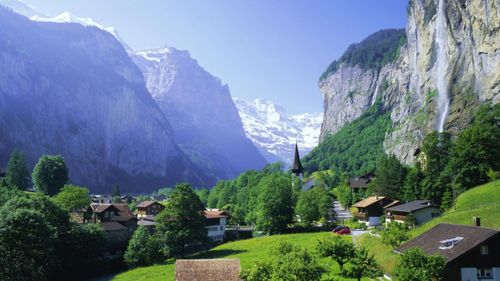Diving Deep into the Contributing Factors of Cultural Diversity in the Caribbean
The Caribbean is a region that is rich in culture, from its music to its cuisine to its history. This diversity can be attributed to the mix of ethnicities and influences that have shaped the region over the centuries. It is a melting pot of people and cultures that has resulted in a unique and vibrant way of life. But what are the contributing factors to the cultural diversity of the Caribbean? Let’s dive in and explore.
Slavery
One of the biggest factors that contributed to the cultural diversity of the Caribbean is slavery. During the 16th to 19th centuries, the Caribbean was a hub for the transatlantic slave trade. Millions of Africans were brought to the region as slaves and were forced to work on the sugar plantations. Slaves came from various parts of Africa and brought with them their own cultures, traditions, and beliefs. This mix of African cultures, along with the culture of their European masters, resulted in the birth of a new, hybrid culture that is uniquely Caribbean.
Colonization
Aside from the slave trade, European colonization also played a role in the cultural diversity of the Caribbean. The region was colonized by different European powers, such as the Spanish, English, French, and Dutch. Each power left its own mark on the region, from the language spoken to the architecture of the buildings. The mixture of these cultures and the influence of indigenous peoples resulted in a rich and diverse cultural heritage.
Geography
The geography of the Caribbean also contributed to cultural diversity. The region is made up of several islands, each with its own history, language, and traditions. The island nations have been shaped by their unique environments, from the lush and mountainous Dominican Republic to the laid-back beach cultures of Jamaica and the Bahamas. This diversity can be seen in the food, music, and art of each island.
Tourism
Finally, tourism has also played a role in cultural diversity in the Caribbean. The region receives millions of visitors each year, bringing with them their own cultures and customs. Caribbean nations have embraced tourism as a means of economic development and are often marketed as “exotic” vacation destinations. This influx of visitors has resulted in a fusion of cultures, with visitors learning about Caribbean traditions and locals embracing new ideas and perspectives.
In conclusion, the Caribbean’s cultural diversity can be attributed to a mixture of factors, including slavery, colonization, geography, and tourism. The region’s history and mix of ethnicities have resulted in a unique and vibrant way of life that is cherished by both visitors and locals alike. As the region continues to evolve, it is important to celebrate and preserve the rich cultural heritage that makes the Caribbean so special.
(Note: Do you have knowledge or insights to share? Unlock new opportunities and expand your reach by joining our authors team. Click Registration to join us and share your expertise with our readers.)
Speech tips:
Please note that any statements involving politics will not be approved.
